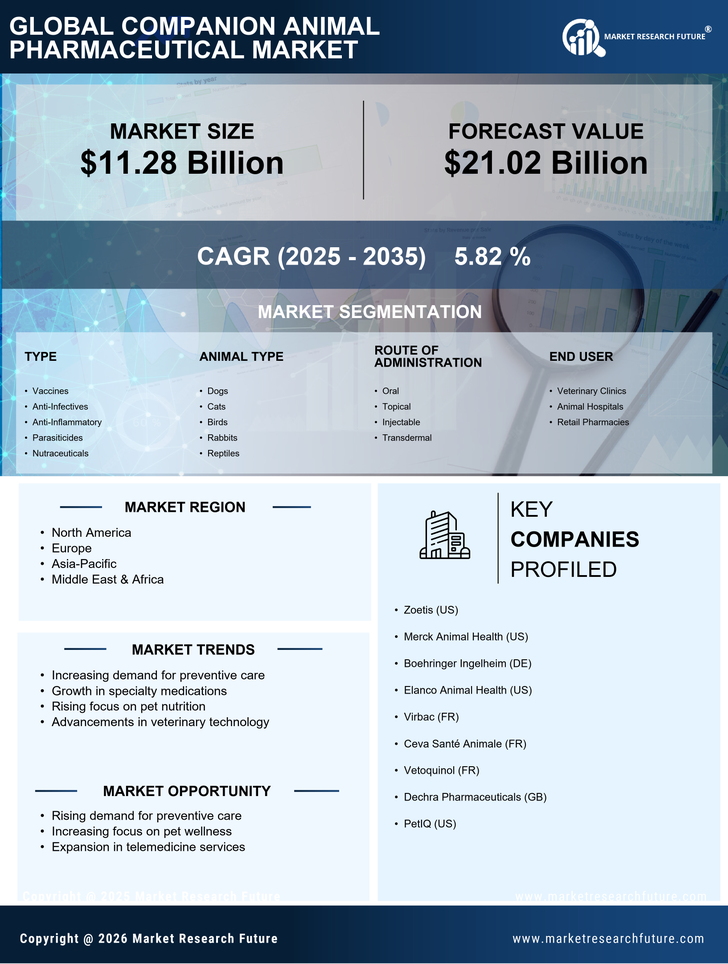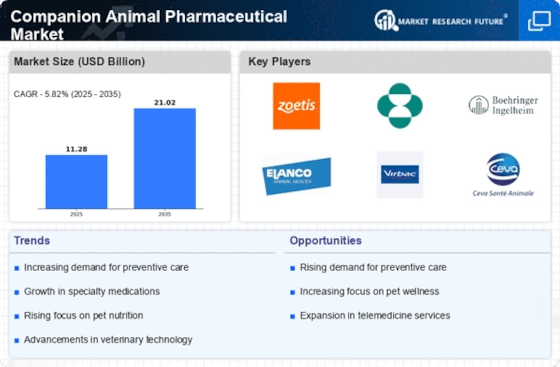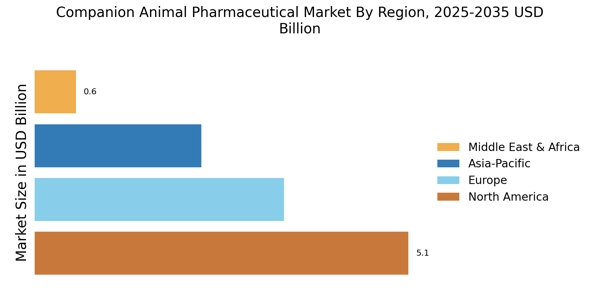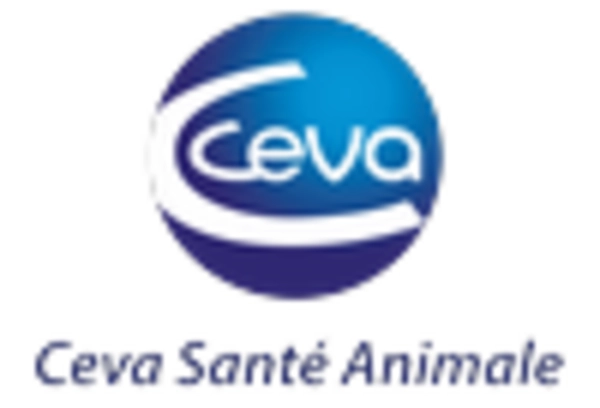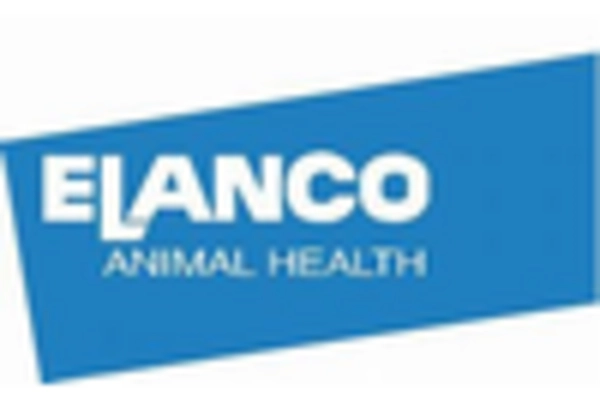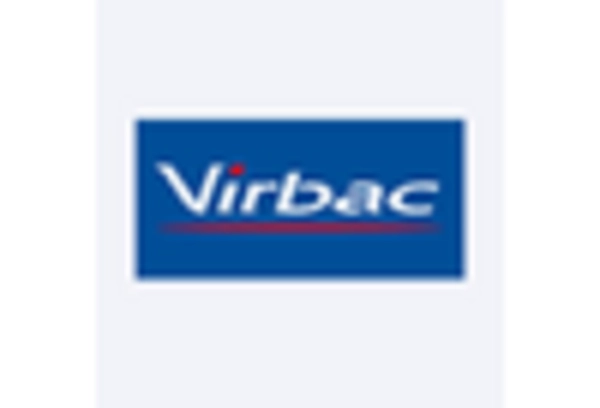Increase in Pet Ownership
The rise in pet ownership appears to be a primary driver for the Companion Animal Pharmaceutical Market. As more households adopt pets, the demand for veterinary care and associated pharmaceuticals increases. Recent statistics indicate that approximately 67% of U.S. households own a pet, which translates to over 85 million families. This growing pet population necessitates a broader range of pharmaceutical products, including vaccines, anti-parasitics, and chronic disease management medications. Consequently, the Companion Animal Pharmaceutical Market is likely to experience substantial growth as pet owners seek to ensure the health and well-being of their animals.
Rise in Pet Insurance Adoption
The increasing adoption of pet insurance is emerging as a significant driver for the Companion Animal Pharmaceutical Market. As more pet owners invest in insurance policies, they are more likely to seek veterinary care and pharmaceutical treatments for their pets. This trend is reflected in the growing number of insured pets, which has seen a rise of over 20% in recent years. Pet insurance alleviates the financial burden associated with veterinary expenses, encouraging owners to pursue preventive care and treatment options. Consequently, the Companion Animal Pharmaceutical Market stands to benefit from this trend, as insured pets often require a wider array of pharmaceutical products.
Growing Awareness of Animal Health
There is an increasing awareness among pet owners regarding the importance of animal health, which serves as a catalyst for the Companion Animal Pharmaceutical Market. Pet owners are becoming more educated about preventive care, leading to higher spending on veterinary services and medications. Reports suggest that the pet care market, including pharmaceuticals, is expected to reach over 200 billion dollars by 2025. This heightened focus on health and wellness drives demand for preventive medications, nutritional supplements, and other pharmaceutical products. As pet owners prioritize their pets' health, the Companion Animal Pharmaceutical Market is likely to benefit from this trend.
Advancements in Veterinary Medicine
Technological advancements in veterinary medicine significantly influence the Companion Animal Pharmaceutical Market. Innovations such as telemedicine, advanced diagnostic tools, and new drug formulations enhance the ability of veterinarians to diagnose and treat various conditions in companion animals. For instance, the introduction of biologics and monoclonal antibodies has revolutionized treatment options for chronic diseases. The market for veterinary pharmaceuticals is projected to grow at a compound annual growth rate of around 6.5%, driven by these advancements. As veterinary practices adopt these technologies, the demand for innovative pharmaceutical solutions is expected to rise, further propelling the Companion Animal Pharmaceutical Market.
Regulatory Support for Veterinary Products
Regulatory frameworks supporting the development and approval of veterinary pharmaceuticals play a crucial role in shaping the Companion Animal Pharmaceutical Market. Agencies responsible for animal health are increasingly streamlining the approval processes for new drugs, which encourages innovation and market entry. For example, the introduction of expedited review pathways for certain veterinary products can significantly reduce time to market. This regulatory support not only fosters competition but also enhances the availability of effective treatments for companion animals. As a result, the Companion Animal Pharmaceutical Market is poised for growth as new products become accessible to veterinarians and pet owners.
